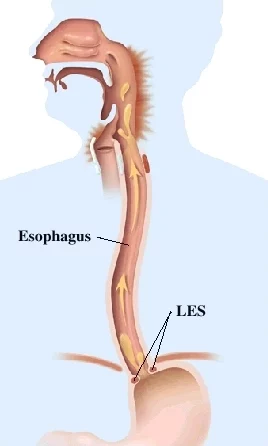If you feel a painful burning sensation in your chest after you eat, you may have gastroesophageal reflux disease (GERD). Heartburn is a classic symptom of GERD, but you may have other symptoms as well.

Note: Chest pain may also be caused by heart problems. Be sure to have all chest pain evaluated by a doctor.
After you eat, food travels from your mouth down the esophagus to your stomach. Along the way, food passes through a one-way valve called the lower esophageal sphincter (LES), the opening to your stomach. Normally the LES opens when you swallow. It allows food to enter the stomach, then closes quickly. With GERD, the LES doesn’t work normally. It allows food and stomach acid to travel back (reflux) into the esophagus.
Some Common Symptoms
- Frequent heartburn or burping
- Sour-tasting fluid backing up into your mouth
- Symptoms that get worse after you eat, bend over, or lie down
- Difficulty or pain when swallowing
Relieving Your Discomfort
You and your health care provider can work together to find the treatment options that best relieve your symptoms. These may include lifestyle changes, medication, and possibly surgery.
